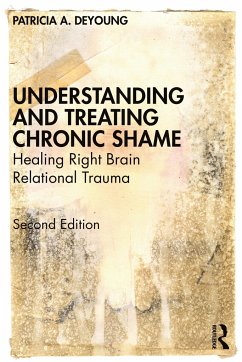
Forgiveness and Reconciliation
Theory and Application
Versandkostenfrei!
Versandfertig in 1-2 Wochen
63,99 €
inkl. MwSt.
Weitere Ausgaben:

PAYBACK Punkte
32 °P sammeln!
To be unforgiving is harmful. The inability to come to terms with one's anger or strife often can lead to stress disorders, mental health disorders, and relationship problems. Forgiveness is a personal decision. Forgiveness and Reconciliation focuses on individual experiences with forgiveness, aiming to create a theory of what forgiveness is and connect it to a clinical theory of how to promote forgiveness. Dr. Worthington creates an evidence-based approach that is applicable for individuals and relationships, and even for society. He also describes an evidence-based method of reconciliation -...
To be unforgiving is harmful. The inability to come to terms with one's anger or strife often can lead to stress disorders, mental health disorders, and relationship problems. Forgiveness is a personal decision. Forgiveness and Reconciliation focuses on individual experiences with forgiveness, aiming to create a theory of what forgiveness is and connect it to a clinical theory of how to promote forgiveness. Dr. Worthington creates an evidence-based approach that is applicable for individuals and relationships, and even for society. He also describes an evidence-based method of reconciliation - restoring trust in damaged relationships. Dr. Worthington hopes that this theory will inform scientific research and improve intervention strategies. Showing that forgiveness transforms personality, Worthington describes ways a clinician can promote (but not force) forgiveness of others and self. He provides research-based theory and applications and discusses the role of emotion and specific personality traits as related to forgiveness. Forgiveness and reconciliation might not be cures, but, as Worthington shows, they are tools for transforming both the self and the world.














